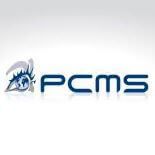Description

COMPASS POS

PCMS Retail
Comprehensive Overview: COMPASS POS vs PCMS Retail
Overview of COMPASS POS and PCMS Retail
a) Primary Functions and Target Markets
COMPASS POS:
- Primary Functions:
- COMPASS POS is designed to handle the core functions of retail operations, including sales transactions, inventory management, customer relationship management (CRM), and reporting. It typically provides features like barcode scanning, receipt printing, real-time data analytics, and integrations with other retail systems such as ERP software.
- Target Markets:
- The primary target markets for COMPASS POS are small to medium-sized retail businesses looking for robust in-store solutions. This includes specialty stores, mom-and-pop shops, and regional retail chains.
PCMS Retail:
- Primary Functions:
- PCMS Retail encompasses a suite of solutions with flagship products like Vision Commerce Suite. It includes functionalities for point of sale transactions, retail commerce, workforce management, e-commerce integrations, promotions, customer engagement, and omnichannel capabilities. PCMS typically offers cloud-based services to support scalability.
- Target Markets:
- PCMS tends to target mid-to-large-sized retailers who require comprehensive and integrated solutions that cover both in-store and online commerce activities. This includes department stores, grocery chains, and multinational retailers seeking omnichannel retail solutions.
b) Market Share and User Base
-
Market Share:
- COMPASS POS: Generally has a smaller market share compared to major industry players, focusing on niche markets and regional retailers. Its market share is more significant in specific local or regional sectors.
- PCMS Retail: Often has a larger market share especially within the United Kingdom and the USA, primarily due to its partnerships with large retailers and its extensive capabilities in the omnichannel space.
-
User Base:
- COMPASS POS: Typically has a loyal and localized user base within smaller businesses, catering to more bespoke retail needs with personalized customer support.
- PCMS Retail: Boasts a broader user base that includes several blue-chip companies and global retail brands, thanks to its scalable and flexible solutions.
c) Key Differentiating Factors
-
Scalability and Flexibility
- COMPASS POS: Offers a solution that is particularly suited to smaller retailers who need a straightforward and easy-to-use system. It provides essential retail functionalities without the complexities and high costs associated with larger systems.
- PCMS Retail: Known for its highly scalable solutions that can accommodate the needs of enterprise-level retailers. The flexibility to support various sales channels and integrations makes it appealing for larger organizations with complex requirements.
-
Deployment and Technology
- COMPASS POS: Generally involves on-premise systems, although there may be cloud options available depending on the specific software package.
- PCMS Retail: Focuses heavily on cloud-based offerings with modern architecture to support rapid deployment, updates, and maintenance. It facilitates seamless integration across different platforms.
-
Omnichannel Capabilities
- COMPASS POS: May offer some level of integration with online stores but typically lacks the deep omnichannel capabilities found in larger systems.
- PCMS Retail: Designed with a strong emphasis on omnichannel experience, providing comprehensive solutions that streamline operations across physical and digital retail spaces.
-
Integration and Customization
- COMPASS POS: Offers essential integrations suitable for smaller retailers but may have limited customization options compared to larger systems.
- PCMS Retail: Provides extensive integration capabilities along with advanced customization options that can be tailored to meet the specific needs of large retailers.
Overall, while COMPASS POS offers a reliable and straightforward option for smaller retailers, PCMS Retail’s comprehensive, scalable, and omnichannel-focused solutions cater primarily to large retail chains looking for a seamless integration of their in-store and online operations.
Contact Info

Year founded :
Not Available
Not Available
Not Available
Not Available
Not Available

Year founded :
Not Available
Not Available
Not Available
Not Available
Not Available
Feature Similarity Breakdown: COMPASS POS, PCMS Retail
When comparing point-of-sale (POS) systems like COMPASS POS and PCMS Retail, it's important to assess both commonalities and distinctions in their feature sets, user interfaces, and unique offerings. Here's a breakdown:
a) Core Features in Common
Both COMPASS POS and PCMS Retail typically offer a set of core functionalities essential for modern retail environments. These usually include:
- Sales Processing: Support for various types of sales transactions including credit, debit, cash, and mobile payments.
- Inventory Management: Ability to track stock levels, automate reorder points, and manage inventory across multiple locations.
- Customer Management: CRM features to keep track of customer purchase history and loyalty programs.
- Reporting and Analytics: Tools for generating sales reports, tracking performance metrics, and analyzing business data.
- Employee Management: Features for managing staff shifts, tracking hours, and securing sensitive operations with user permissions.
- Promotions and Discounts: Ability to manage and apply discounts, coupons, and promotional pricing.
- Integration Capabilities: APIs and support for integration with e-commerce platforms, accounting software, and other business systems.
b) User Interface Comparison
-
COMPASS POS: Known for a user-friendly interface designed with ease of use in mind, it often emphasizes intuitive navigation and quick access to key functionalities. The interface may include customizable dashboards and widgets to provide users with pertinent information at a glance.
-
PCMS Retail: The interface tends to focus on scalability and adaptability, catering to both small and large retail operations. It often highlights flexible design, capable of handling complex retail environments with features like touch-screen optimizations and detailed transaction processing screens.
c) Unique Features
-
COMPASS POS:
- May offer specific industry-driven modules such as advanced dining features for restaurants or specialized retail modules, accommodating niche markets.
- Integration with a broader suite of business management tools, which can streamline operations beyond just the POS system itself.
-
PCMS Retail:
- Known for its strong omnichannel capabilities, allowing seamless customer experiences across in-store, online, and mobile channels.
- Advanced data analytics and insights tailored for retail, with more comprehensive dashboards and predictive analytics.
- Support for complex promotional strategies, including region-specific campaigns and personalized marketing.
Conclusion
Both COMPASS POS and PCMS Retail offer comprehensive solutions with a variety of overlapping features crucial for retail management. However, the choice between them may depend on specific business needs such as industry focus, scale, and integration requirements. COMPASS POS might be favored for its user-friendly approach and seamless integration with business tools, whereas PCMS Retail could appeal to businesses looking for robust omnichannel support and advanced analytics capabilities.
Features

Inventory Management
Sales Reporting
Customer Support
User-Friendly Interface
Streamlined Payment Processing
Customer Management
Secure Transactions

Store Operations
Employee Management
Customer Engagement
eCommerce
Best Fit Use Cases: COMPASS POS, PCMS Retail
COMPASS POS and PCMS Retail are both point-of-sale solutions tailored to different business needs. When considering these systems, it's important to evaluate which one aligns best with specific business requirements, industry verticals, and company sizes. Here's a breakdown of the best fit use cases for each:
COMPASS POS
a) Ideal Business Types or Projects:
- Small to Medium Enterprises (SMEs): COMPASS POS is well-suited for smaller businesses that require a straightforward, user-friendly POS system. This includes small retail stores, boutiques, cafes, or local restaurants.
- Independent Retailers: Businesses that focus on a limited product line or niche market may find COMPASS POS to be a cost-effective solution due to its ease of use and basic feature set.
- Single-location businesses: Companies that operate from a single location or a few locations may benefit from the streamlined functionalities without the need for complex enterprise-level integrations.
Industry Alignment:
- Hospitality and Retail: COMPASS POS offers functionalities that cater to both retail environments and hospitality industry needs. This makes it versatile for small restaurants, coffee shops, and retail outfits.
Company Sizes:
- Small to Medium-sized Companies: The simplicity, ease of installation, and lower cost mean it's perfect for businesses that do not require extensive customizations or enterprise-level features.
PCMS Retail
b) Preferred Scenarios:
- Large Retail Chains: PCMS Retail is tailored for large retail operations that require robust, scalable solutions. This system supports multi-location operations and can handle a large amount of transaction data.
- Complex Retail Environments: Businesses that require advanced features such as inventory management, CRM, loyalty programs, and analytics would benefit from PCMS Retail's comprehensive set of tools.
- Omnichannel Retailers: Companies that require seamless integration across online and offline sales channels would prefer PCMS due to its flexibility and customizability.
Industry Alignment:
- Enterprise Retail Chains and Department Stores: The solution is ideal for large retailers needing sophisticated functionality across numerous departments and locations.
- E-commerce Integration: Retailers with significant online sales components may opt for PCMS Retail to ensure synchronization across sales platforms.
Company Sizes:
- Large Enterprises and Multinational Corporations: PCMS Retail's ability to support extensive customizations and complex operational needs makes it best suited for larger, enterprise-level companies with substantial resource allocations for IT and systems management.
Conclusion
COMPASS POS is a great choice for small to medium-sized businesses that need an efficient, straightforward solution without the extensive complexities of larger systems. On the other hand, PCMS Retail is better suited for large businesses with complex operational needs that require a system capable of comprehensive integrations and scalability across numerous locations and sales channels. Each solution caters to different industry verticals by offering tailored features and functionalities adaptable to varied business sizes and requirements.
Pricing

Pricing Not Available

Pricing Not Available
Metrics History
Metrics History
Comparing undefined across companies
Conclusion & Final Verdict: COMPASS POS vs PCMS Retail
To provide a conclusion and final verdict for COMPASS POS and PCMS Retail, we should evaluate both products based on overall value, pros and cons, and offer specific recommendations for potential users.
Overall Value
a) Considering all factors, which product offers the best overall value?
Both COMPASS POS and PCMS Retail offer unique strengths, making them valuable depending on the business context:
-
COMPASS POS: This system is often praised for its straightforward functionality and user-friendly interface. It provides excellent customer support and is generally cost-effective for small to medium-sized businesses seeking a straightforward, reliable POS solution without complex customization needs.
-
PCMS Retail: This product is known for its scalability and rich feature set, making it particularly suitable for large retailers with complex needs. It offers comprehensive functionalities, advanced analytics, and integration capabilities, making it a valuable long-term investment for growing businesses.
Overall Best Value Verdict: If a business prioritizes comprehensive functionality and scalability, PCMS Retail may offer the best value. For simpler operations that require a cost-effective and easy-to-use system, COMPASS POS could be preferable.
Pros and Cons
b) What are the pros and cons of choosing each of these products?
COMPASS POS:
- Pros:
- User-friendly interface and easy setup.
- Cost-effective, making it ideal for small to medium enterprises.
- Strong customer service and support.
- Cons:
- Limited scalability and customization options compared to larger platforms.
- May lack some advanced features needed by larger retailers.
PCMS Retail:
- Pros:
- Highly scalable, suitable for large and complex retail operations.
- Extensive array of features and advanced analytics.
- Strong integration capabilities with existing retail systems.
- Cons:
- Higher cost, which might not be justifiable for smaller businesses.
- Potentially more complex setup and a steeper learning curve for new users.
Recommendations
c) Are there any specific recommendations for users trying to decide between COMPASS POS vs PCMS Retail?
-
Identify Business Needs: Determine the scale of your operations and your business’s specific needs. If you require a lot of customization and advanced features, PCMS Retail is likely the better choice. Conversely, if your needs are more basic, COMPASS POS could be more appropriate and cost-efficient.
-
Budget Considerations: Consider your budget not just for the immediate purchase but for long-term operation, including costs for training, support, and potential upgrades. COMPASS POS is generally more budget-friendly.
-
Growth Plans: If your business has aggressive growth plans or intends to expand rapidly, PCMS Retail might be better due to its scalability. For businesses that plan to maintain their size, COMPASS POS could adequately meet their needs.
-
Trial and Demos: Take advantage of any trial periods or product demonstrations offered by both services to get a hands-on feel for their system functionalities and user experience.
By focusing on these areas, businesses can make an informed decision that aligns with their operational needs and long-term strategic goals.
Add to compare
Add similar companies



